Efficient quantum state tracking in noisy environments
—by Markus Rambach
EQUS researchers have experimentally demonstrated an algorithm that efficiently characterises evolving quantum states, even in the presence of substantial noise.
Quantum state tomography is essential for quantum computation and communication applications. However, current techniques scale notoriously badly with dimension and are generally not capable of following evolving states dynamically. Methods that overcome these issues have been proposed theoretically, but there have been very few experimental demonstrations.
Our EQUS team experimentally implemented an efficient way to describe quantum states that change in time, with high fidelity, using a machine learning technique known as matrix-exponentiated gradient tomography. We did this using photonic qutrits (three-dimensional quantum systems) in the presence of substantial environmental noise up to 20 times higher than the actual signal. Such an efficient algorithm paves the way to describing large, evolving systems (greater dimensions and/or larger numbers of quantum carriers), for which the current standard quantum state tomography techniques perform poorly.
Moving forward, we would like to extend the scheme to higher dimensions and/or more photons. We'd encourage other EQUS members to get involved by trying the scheme in their systems, such as ions or superconducting qubits. It would also be interesting to see whether the underlying theory could be used in closely related fields such as Hamiltonian identification and continuous learning.
Read the full paper here: https://arxiv.org/abs/2205.06389. Markus is a Research Fellow in the Qudits@UQ laboratory, which is led by Chief Investigator Jacq Romero. This work fits within EQUS' Quantum Engines and Instruments research program.
Major funding support

The Australian Research Council Centre of Excellence for Engineered Quantum Systems (EQUS) acknowledges the Traditional Owners of Country throughout Australia and their continuing connection to lands, waters and communities. We pay our respects to Aboriginal and Torres Strait Islander cultures and to Elders past and present.


